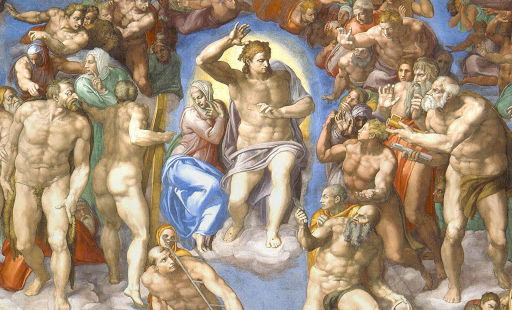Purgatory: what the Church says and Sacred Scripture
The souls who, surprised by death, are not guilty enough to deserve Hell, nor good enough to be immediately admitted to Heaven, will have to purify themselves in Purgatory.
The existence of Purgatory is a truth of definite faith.
1) Holy Scripture
In the second book of the Maccabees (12,43-46) it is written that Judah, general in chief of the Jewish troops, after fighting a bloody battle against Gorgia, during which many of his soldiers had remained on the ground, summoned the survivors and proposed to them to make a collection in suffrage of their souls. The harvest of the collection was sent to Jerusalem to offer atoning sacrifices for this purpose.
Jesus in the Gospel (Matt. 25,26 and 5,26) makes explicit mention of this truth when he says that in the other life there are two places of punishment: one where the punishment never ends "they will go to eternal torture"; the other where the punishment ends when all the debt to the Divine Justice is paid "to the last cent."
In the Gospel of St. Matthew (12,32:XNUMX) Jesus says: "Whoever blasphemes against the Holy Spirit cannot be forgiven neither in this world nor in the other". From these words it is clear that in future life there is a remission of certain sins, which can only be venial. This remission can only take place in Purgatory.
In the first Letter to the Corinthians (3,13-15) Saint Paul says: «If someone's work is found deficient, he will be deprived of his mercy. But he will be saved through fire ». Also in this passage we speak clearly of Purgatory.
2) Magisterium of the Church
a) The Council of Trent, in the XXV session, proclaims: "Enlightened by the Holy Spirit, drawing from Sacred Scripture and the ancient Tradition of the Holy Fathers, the Catholic Church teaches that there is a" state of purification, Purgatory, and retained souls find help in the suffrages of believers, especially in the sacrifice of the altar to God acceptable "".
b) The Second Vatican Council, in the Constitution «Lumen Gentium - chap. 7 - n. 49 "affirms the existence of Purgatory saying:" Until the Lord comes in his glory and all the Angels with him, and once death is destroyed, all things will not be subjected to him, some of his disciples are pilgrims on earth , others, passed from this life, are purifying themselves, and others enjoy glory by contemplating God ».
c) The Catechism of St. Pius X, to question 101, replies: "Purgatory is the temporary suffering of the deprivation of God and of other penalties that take away from the soul any remnant of sin to make it worthy to see God".
d) The Catechism of the Catholic Church, in numbers 1030 and 1031, states: "Those who die in the grace and friendship of God, but are imperfectly purified, although they are certain of their eternal salvation, are however subjected, after their death , to a purification, in order to obtain the holiness necessary to enter the joy of Heaven.
The Church calls this final purification of the elect "purgatory", which is quite different from the punishment of the damned ".
